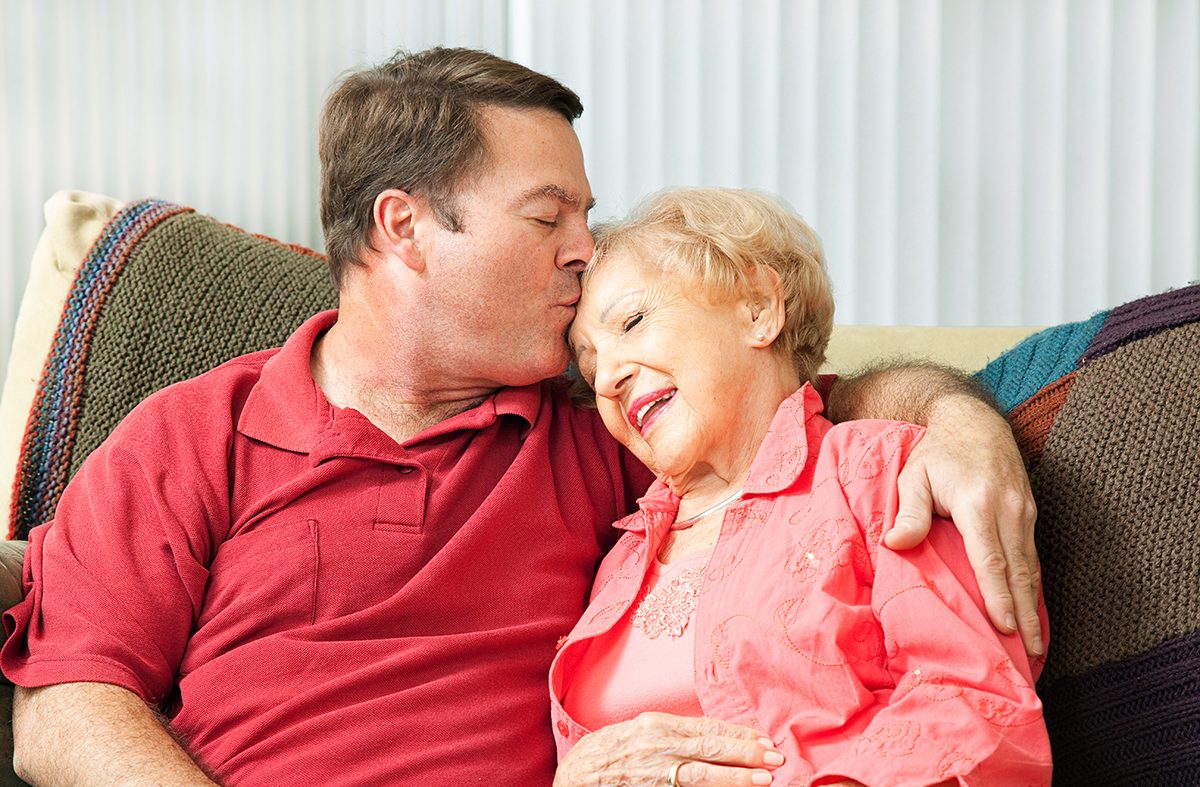Having a parent or grandparent living in their own home can be both a challenge and a blessing. Since we are all living longer due to advances in science, our long-lived loved ones may also be afflicted with longer term chronic illnesses that leave them unable to be totally independent as they would like. It puts the caregiver in the position of reversing roles, to, in effect, parent the parent, while trying to maintain that person’s dignity as well as ensuring that others in the household (including said caregiver) are given the care that they need provide an emotionally and physically stable environment for all. One way families can achieve this balance is to embrace the contributions that the elderly make in our lives and in the family dynamic. By keeping this view point in the fore front of your mind during the inevitable squabbles and personality clashes, having a senior remain in their own home, with assistance from a trained professional, truly can be a labor of love.
For one thing, children always benefit from having the eldest generation available for story times and advice. They may roll their eyes and clutch their IPad close, but the interaction with a grandparent or beloved aunt can eventually encourage a greater acceptance of people of all ages, capabilities, and limitations. These connections are just as important to the senior in question. Depending on the diagnosis, caregivers may try to encourage kids to stay away from Gammy or Pop-pop for fear that the child will bother or disturb the older family member. However, unless their diagnosis includes symptoms of harming themselves or others, this kind of interaction should be encouraged in part because it has been shown to make them feel better. Research has shown that the elderly who are able to stay in their homes, surrounded by loved ones, and feeling needed, are far more likely to recover from episodes that otherwise might lead to long-term hospital care.
In many cultures, multi-generational housekeeping is a given and occurs naturally before the progression of the elder generation into medical necessity. This would seem less jarring for all concerned as all generations find an equilibrium prior to health care emergencies rather than creating a care-plan totally from scratch. With the change in the economy within the last decade, this multigenerational family model is becoming more prevalent in the United States.
This is not to downplay the stress of caring for an elderly parent or grandparent. But these responsibilities become less troubling by including all members of a family in the care and decision making. If one spouse handles doctor’s appointments and medications, another could be in charge finances and physical activities like exercise or visiting friends. Kids can switch off reading to or being read to by their older relative. Most people are happy to do their part in the care of a treasured elder, despite the financial and time management difficulties that may arise. This is an invaluable opportunity to reconnect with a parent, to improve an existing relationship, develop a new one, or put aside old differences.
And as you adjust to this new dynamic you will be rewarded for your efforts of who your loved one is, why they are the way they are and ultimately, who you are as a result. Caregiving often presents the chance to be close to your loved ones in a way you never imagined. To a certain extent, this involves taking care of their physical needs. But as you attend them on this voyage that is the later years of life, you learn the details of their lives; their hopes, dreams, and fears. It is a guarantee that something you learn will surprise you. Maybe you will laugh with them….maybe you will cry. Maybe you will become angry at what they went through! But these stories that they tell are your personal history… they are what culminated in your existence.
There are so many special moments that you get to enjoy while providing care for an elder adult. Not the least of which are the smiles and laughs you will hold in your memories for years to come, but also the perspective that can be had on life-a life hopefully well lived, what is truly important for actual happiness, and in the case of the loving person who has chosen to care for their older relative at home, a life without regret.

